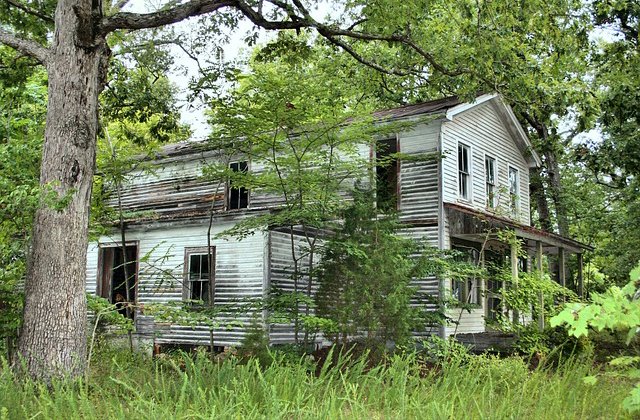Syracuse, NY - January 28, 2019 - Attorney General Letitia James today announced “Zombies 2.0,” the expansion of a grant initiative to address the growing statewide issue of “zombie homes”-- vacant and abandoned homes that are not maintained during a prolonged foreclosure proceeding.
“Zombies 2.0” will provide up to $9 million in grants to municipalities across the state to address housing vacancy and blight. The grants will provide funds to municipalities to increase housing code enforcement, track and monitor vacant properties, and bolster legal enforcement capacity to ensure banks and mortgage companies comply with local and state law.
“Far too many communities throughout New York continue to be blighted by zombie homes,” said Attorney General Letitia James. “These abandoned houses significantly decrease property values and threaten the safety of surrounding neighborhoods. Zombies 2.0 will be a key resource for cities and town across the state to combat this nuisance, and make communities whole.”
These grants are a continuation of the 2016 Zombie Remediation and Prevention Initiative created by the Office of the New York Attorney General, which provided nearly $13 million in grants to 76 New York municipalities. This year’s grant will allow previous recipients to continue their previous work, or will give first-time grantees the opportunity to secure funding to support their zombie and vacant property efforts.
Through the grants provided by the Zombie Remediation and Prevention Initiative, municipalities:
- Improved data collection and analysis to track vacant and abandoned properties;
- Invested in new technology to better collect and analyze data to address the collective impact of vacant properties on neighborhoods;
- Created “Zombie Coordinators” and Taskforces to coordinate code enforcement activities and resources;
- Boosted capacity of code enforcement and legal departments to enforce relevant laws to hold lienholders accountable or seek remedies to improve housing quality; and,
- Connected at-risk homeowners to foreclosure prevention resources.
The “Zombies 2.0” funding is a result of the Office of the New York Attorney General’s $500 Million Settlement with the Royal Bank of Scotland in 2018 over the bank’s deceptive practices and misrepresentations to investors in connection with the packaging, marketing, sale, and issuance of residential mortgage-backed securities (RMBS) leading up to the financial crisis. The settlement marks a total of $22 Million investments in zombie grants funded by settlements from banks.
“Zombie properties leave an undue burden on the communities that surround them,” said Assemblymember Pamela Hunter. “Neglected properties that fall into disrepair because of absentee banks attract crime and lower the property values of surrounding homes. The program announced today will give municipalities and homeowners the resources they need to mitigate blight and put communities back on track.
“I thank Attorney General James for continuing to help our municipalities battle the scourge of “zombie” properties,” said Assemblymember Bill Magnarelli. “Even though it has been a decade since the “mortgage foreclosure crisis”, our Upstate municipalities continue to deal with abandoned and blighted properties that damage neighborhoods. These new funds made available by the Attorney General will allow our cities, towns and villages to take action on these properties and return them to productive use.”
“Communities all across New York State are affected by abandoned homes and zombie properties,” said Cortland Mayor Brian Tobin. “I thank the Attorney General’s Office for their support as we continue to move forward we need to be aggressive in bringing properties that are not in compliance so that they are no longer a drain in their communities.”
“Municipalities all over the state are reducing their number of vacant homes, energizing their local economies and improving their long-term quality of life,” said Helene Caloir, director of LISC’s New York Stabilization Fund, which also administered the state’s first round of zombie grants. "One vacant house gets spruced up and soon there are prospective purchasers; surrounding neighbors start investing more in their homes as nearby properties improve; and the entire community is lifted. House by house, block by block, neighborhoods are on the upswing.”
“Enterprise is pleased to provide resources to continue the successful work LISC and the OAG have undertaken to address "zombie" properties in communities throughout New York State,” said Judi Kende, vice president and New York market leader, Enterprise Community Partners. “Empowering municipal leaders to alleviate blight will create economic opportunity and turn vacant and abandoned properties into valuable assets for communities still recovering from the foreclosure crisis.”
The Zombie Remediation and Prevention Initiative coincided with the passage of the New York State Abandoned Property Neighborhood Relief Act of 2016 (the “Zombie Law”) which requires banks and other mortgagees to externally maintain vacant one-to-four family houses during the foreclosure process or face a potential penalty of up to $500 per day per property. Zombie grantees used funds to bolster legal efforts to enforce the Zombie Law by issuing citations to noncompliant mortgagees or in some cases taking mortgagees to court to enforce the law.
Local Initiatives Support Corporation (LISC) is managing Zombies 2.0 with funds administered by Enterprise Community Partners. LISC will issue a Request for Applications by invitation to municipalities based on the number of abandoned residential properties within the municipality; the proportion of such properties compared to the overall number of residential properties; and its level of general economic distress. All invitees must have populations of at least 5,000 residents and at least 100 vacant and abandoned properties, or multiple municipalities can apply jointly to equal or exceed the population and vacant residential properties minimums.
Applications are due Friday, March 8, 2019. Awards are expected to be announced April 12, 2019. LISC expects to award grants in amounts ranging from $50,000 to $500,000 based on the scale and severity of their “zombie” and other vacant one-to-four family house problems.










